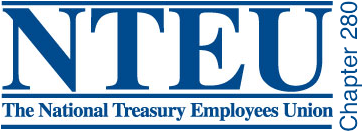by Lou Kerestesy
Too often, when government attempts to change, it ends up reinforcing behaviors it doesn’t want.
Government is under such tremendous pressure to improve that change is the new normal. Yet many in government feel worn down by change that doesn’t improve much for them or their customers. Agencies that undergo “change management” efforts make three common mistakes that inhibit change and reinforce undesirable behavior:
- Most organizational change is conducted from the top, where the view is too broad to see specific behaviors that need to be different. A top-down view lacks information from lower and peripheral parts of the organization needed to make change stick. It also mistakenly assumes leaders control or can influence the right change mechanisms throughout the organization.
- Most organizational change is about the organization, not behavior. Goals, benefits, strategies, new processes and procedures, tools, re-organizations — most are about the organization. Leaders rarely describe specific existing behaviors in need of change, or what desired behaviors would look like.
- Most change efforts take the wrong approach to changing behavior. Top-down, organizationally focused change requires compliance, and compliance relies on punishment and penalty (with some negative reinforcement). These are great for preventing, decreasing and stopping unwanted behavior, but not for promoting new behavior.
Fixes to these shortcomings are straightforward.
Leadership can integrate top-down and bottoms-up approaches by talking to the people who will be impacted by change. The "what" and "why" of change should be communicated from the top down and from the center out. But information about the how of change needs to be communicated up and in. Hold town hall meetings, set up a cross-agency workgroup, take surveys — find ways to ask people in the organization “how would we do that?” and, periodically, “how’s it going?”
An easy fix to sync behavioral and organizational change is to identify not just the current activity that leadership want to be different, but also the behavior. Explain what’s wrong with current behaviors and what triggered the need to change them. Describe new behavior that leadership wants to see. Ask people who do the work to tell you how their behavior would have to change to be more of something that is the target of the change effort — more innovative, customer-service oriented, risk tolerant, etc.
Finally, promote new, desired behavior using positive reinforcement. But beware, that doesn’t mean pats on the back and bonuses.
Everything we do produces a consequence. When a behavior changes our environment in ways we like, we repeat it. When it changes our environment in ways we don’t like, we stop. According to Aubrey Daniels in “Bringing Out the Best in People,” we do what we do because of what happens after. To change the right behaviors in the right way is to understand what reinforces them and to modify reinforcements accordingly.
Consider this example: If contracting officers spend more time with customers to produce better requirements and solicitations but miss deadlines for awards and extensions, what happens? They’re not rewarded for better contracts and forgiven for missing deadlines. They get in trouble for missing deadlines because the real reinforcement in their world is for throughput, not better quality.
Organizations get the behaviors they reinforce. If they modify reinforcements they can change behavior like a magnet aligns metal shavings. One powerful positive reinforcement an organization can offer is to enable someone to improve what they do to benefit themselves and their customer, and let them carry out it without getting in trouble.
Organizations will likely find they must prioritize — that as their people do more of something, better, they have less time for something else. But that’s also what change management is about, isn’t it?










